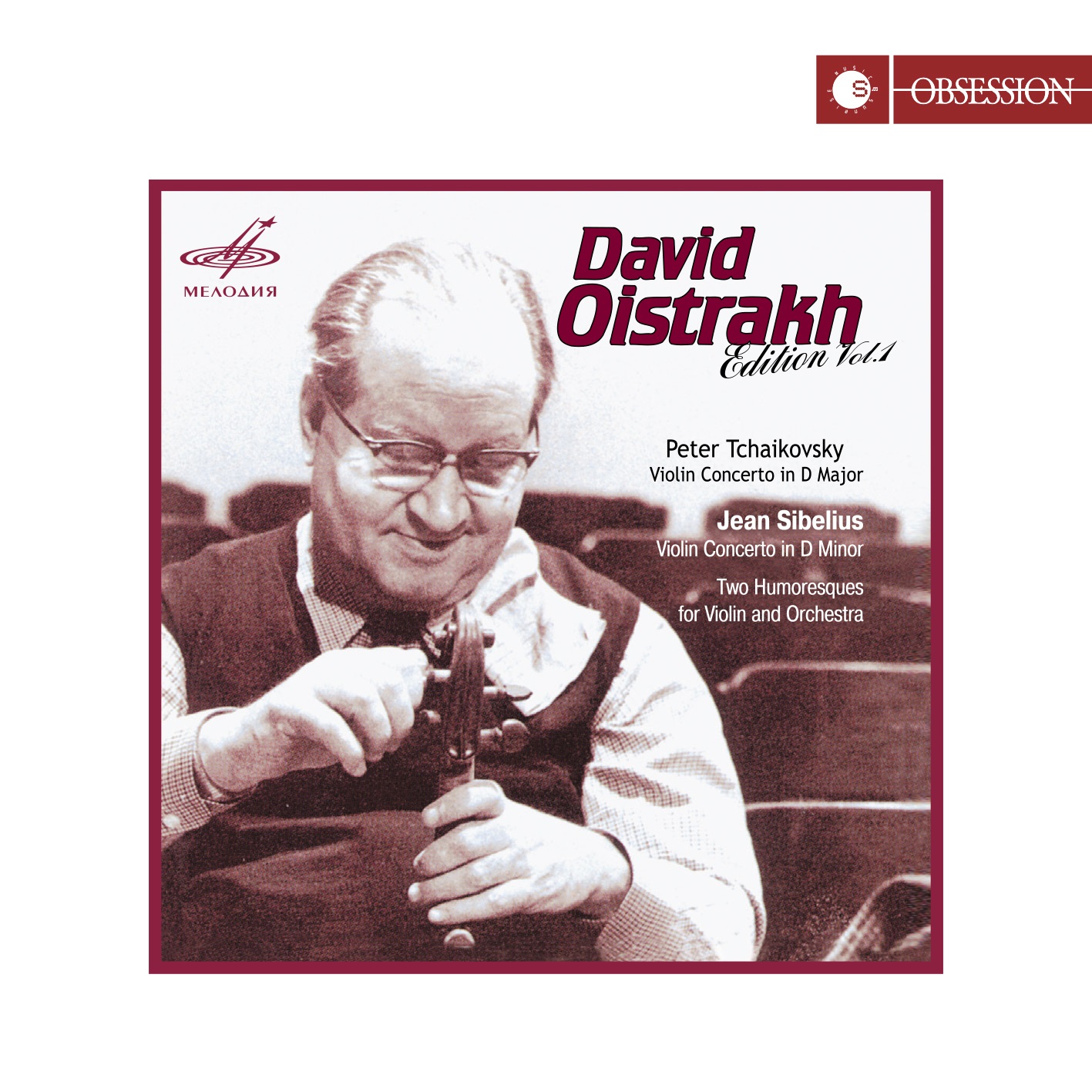David Oistrakh Edition Vol.1 (CD)
| 作者 | David Oistrakh |
|---|---|
| 出版社 | 群英文化有限公司 |
| 商品描述 | David Oistrakh Edition Vol.1 (CD):大衛歐伊斯特拉赫(DavidOistrakh,1908~1974)小提琴羅傑斯特文斯基指揮莫斯科愛樂/蘇聯廣電交響樂團輯選自大師60歲生日莫斯科音樂會紀 |

| 作者 | David Oistrakh |
|---|---|
| 出版社 | 群英文化有限公司 |
| 商品描述 | David Oistrakh Edition Vol.1 (CD):大衛歐伊斯特拉赫(DavidOistrakh,1908~1974)小提琴羅傑斯特文斯基指揮莫斯科愛樂/蘇聯廣電交響樂團輯選自大師60歲生日莫斯科音樂會紀 |
內容簡介 大衛歐伊斯特拉赫 (David Oistrakh,1908~1974) 小提琴羅傑斯特文斯基 指揮 莫斯科愛樂 蘇聯廣電交響樂團 輯選自大師60歲生日莫斯科音樂會紀實(1968) & 西貝流士冥誕百年紀念特輯; Strad. 銘琴靚聲演繹俄羅斯源音母帶無壓縮輸出、低音染,原味十足No other concerto was played more often by David Oistrakh than Peter Ilyich Tchaikovsky's Violin Concerto in D major op. 35. Indeed, many decisive moments and events in his life were connected with the work in 1925, while a student at the Odessa Conservatoire, the 17-year-old gave his first public performance as a soloist with the piece. Three years later Nikolai Malko invited him to Leningrad where the unknown violinist from provincial Odessa, performing on a rather mediocre instrument, won the admiration of both Russia's elite orchestra and an audience who was accustomed to the very best on the bill was Tchaikovsky's Opus 35. In 1937 Oistrakh was awarded first prize at the International Eugene Ysaye Competition in Brussels, and again it was his performance of Opus 35 that brought him the casting vote. His victory in what must be the world's most demanding violin competition sparked off a career which brought him acclaim all over the globe. In 1942 the famous violinist gave a performance in Leningrad which was under siege at the time: "The city was dominated by hunger cold, need, misery and unrest. But in spite of this the great hall was packed to the full, although the people in the audience had to keep their coats on because of the cold. When I played the Canzonetta from Tchaikovsky's concerto, the air-raid sirens suddenly began to wail but not one single person rose from their seat and so I played the concerto through to the end." In remembrance of the 50th anniversary of the founding of the Czech Philharmonic Orchestra in 1944, the people of Prague celebrated with their very first music festival, the so-called Prague Spring, in 1946. As a special birthday present to the people of Prague, David Oistrakh brought the Opus 35 with him from Moscow; in 1966 he returned to the city once again after a 20 year absence. In the meantime he had performed Tchaikovsky's Violin Concerto all over the world.Dmitri Shostakovich once happened to occupy the hotel room next to the violinist when he was giving a guest performance and took every opportunity to listen to him practising the concerto. When he asked the surprised Oistrakh if it was really necessary to practise the work so intensively after having performed it at least 100 times, the now-famous answer was: "But that is exactly why! It has to be just as fresh and new as though it were the very first performance! I want to get away from the stereotype of effective and brilliant performance; I am trying to get at the very kernel of Tchaikovsky's music and am trying to track down its melodic elements even in purely mechanical episodes." David Oistrakh managed to achieve this in exemplary fashion on 27 September 1968 in a concert conducted by Gennadi Rozhdestvensky in the Great Hall of the Moscow Conservatoire. At this gala concert to celebrate Oistrakh's 60th birthday there was no exaggerated pomp but a transparency of thought and lightness in the outer movements, with an amazingly dry- though thoroughly appropriate edge to the work all the while, and in particular a soulful intimacy in the Canzonetta. It is precisely here that the rea- son becomes apparent as to why the people of Leningrad suffering from cold, fear and hunger, did not leave their seats when the air-raid sirens wailed in 1942: this is concentrated music-mak- ing which demands concentration. One does not simply hear details, one recognizes and personally experiences their meaning to the full,- in the A major episode of the Finale for example, where a breath of spring air, as it were, is felt during the course of the ever more urgent oppressive and gloomy music. The year in which Oistrakh celebrated his 60th birthday was also the year in which Russian tanks put an end to the Prague Spring and Brezhnev's doctrine darkened Russian life. "We were left with nothing but music", stated the Russian cellist Mstislav Rostropovich. "It was a bright spot, a ray of life. It was our air to breathe." David Oistrakh was a man who inter- preted this elixir of life.
作者介紹 Gennady Rozhdestvensky 羅傑斯特文斯基 指揮 莫斯科愛樂 蘇聯廣電交響樂團
| 書名 / | David Oistrakh Edition Vol.1 (CD) |
|---|---|
| 作者 / | David Oistrakh |
| 簡介 / | David Oistrakh Edition Vol.1 (CD):大衛歐伊斯特拉赫(DavidOistrakh,1908~1974)小提琴羅傑斯特文斯基指揮莫斯科愛樂 蘇聯廣電交響樂團輯選自大師60歲生日莫斯科音樂會紀 |
| 出版社 / | 群英文化有限公司 |
| ISBN13 / | |
| ISBN10 / | |
| EAN / | 0489202306026 |
| 誠品26碼 / | 2682560898006 |
| 語言 / | 99:無 |
| 尺寸 / | 12 x 14 x 1 cm |
| 級別 / | N:無 |
| 重量(g) / | 99 |
| 提供維修 / | 無 |
最佳賣點 : 大衛歐伊斯特拉赫 (David Oistrakh,1908~1974) 小提琴
羅傑斯特文斯基 指揮 莫斯科愛樂 / 蘇聯廣電交響樂團
輯選自大師60歲生日莫斯科音樂會紀實(1968) & 西貝流士冥誕百年紀念特輯; Strad. 銘琴靚聲演繹
俄羅斯源音母帶無壓縮輸出、低音染,原味十足